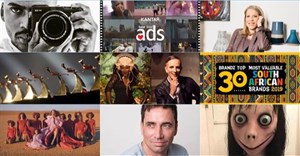[Communications] Who really safeguards a company's reputation?
In fact, it would appear than in some instances, the social media teams simply react without forecasting the outcomes.
So let's take a step back to good old reputation management - the cornerstone principle of safeguarding a company's good name. In the past, it was a function almost exclusively dedicated to the corporate affairs teams - they owned it and anything that needed to be addressed around 'reputation', went through them.

But then social media happened... now everyone has the power and influence to report on and talk about any company, doing anything, at any time. And companies who ignore it do so at their peril because ignoring it doesn't make it go away. It just means you are left out of the conversation.
Worse still, companies who still think reputation management is reserved for those only trained in communication. If you think back to mid-August, a huge social media furore broke over a Virgin Active gym manager asking Mohammed Desai to leave the Old Eds Virgin Active gym for wearing a t-shirt with a political message, which some members took offence to. Very often, one finds that the principles of reputation management are not shared with front line staff - they may be taught the technical skills of their jobs, but not how their actions can more broadly impact a company's reputation.
Action 1
Action number one for organisations, is to better understand their touch points and who could have an impact. Then, invest in training for those individuals to better understand their reputational impact.
Around the same time, Pick n Pay had a (very public) knee-jerk reaction to a story published on Bizcommunity by Louise Marsland, a well-known media journalist. Marsland referred to a column by Celeste Barlow, a 'mommy blogger' as she has become known, who simply called things as they were - and yes, she swore a bit too. So what. Don't like it, don't read it. But for many people, a light-hearted story about parenting challenges was welcome.
Very little happened until someone sitting in Pick n Pay's social media team decided it would be a good idea to publicly asked Louise to remove her story (see image). And from that moment, Pick n Pay couldn't unwind the clock. It was out there. Public, for all to see. Pick n Pay's reaction was to try censor the comments.
![[Communications] Who really safeguards a company's reputation?](https://biz-file.com/c/1510/317474.jpg)
Admittedly, by the end of the day they realised what they had done and apologised. So credit where it is due. But why do companies allow access to post on their behalf to people who are not trained to understand the consequences of social media actions?
Training shouldn't be limited to writing and technical skills, but a deeper understanding of the impact one's actions have. This situation could have been handled in a dozen of different ways, without trying to ask a journalist to remove a now public story. Pick n Pay could have even joined the conversation.
Action 2
Action number two - train the people managing social media on how to handle foreseeable situations and what to do when something is unforeseen. Don't assume that because someone can post a tweet, that they are reputation experts.
Aside from this incident, which everyone it would appear learned something from, is the ongoing lack of understanding of how to position yourself on social media. The images below are screenshots as of 8 September, showing South African Airways Twitter landing page and British Airways.
![[Communications] Who really safeguards a company's reputation?](https://biz-file.com/c/1510/317472.jpg)
I draw your attention to the difference between the two airlines in the way in which they position themselves on social media - which is a 24/7, non-stop public platform to engage your clients. SAA's reads: "The home of South African Airways - Africa's Most Awarded Airline. http://www.flysaa.com we tweet from 8am to 5pm and we love feedback." Versus British Airways, "Official British Airways Twitter account. We love reading your Tweets & are here 24 hours a day, 7 days a week to help. You can also visit...".
So, SAA welcomes feedback, but if you want a response best you only tweet between 8 and 5.
Action 3
Action number three - positioning. Choose how you want to be seen by the public you engage with and manage your reputation planning accordingly.










































